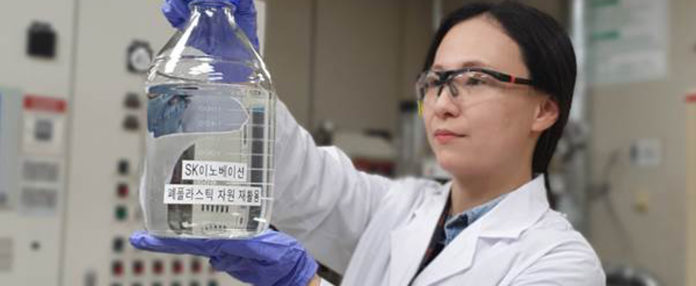
SK Innovation said Sunday that it has developed a process to make API Group III base stocks from pyrolysis oil extracted from waste plastics. The announcement marks another step in industry efforts to recycle plastics into value-added products.
The company, which is part of the Seoul-based conglomerate SK Group and parent company of SK Lubricants, the world’s largest Group III producer, said it succeeded in making Group III oil on a pilot scale by greatly reducing the level of impurities in the pyrolysis oil.
Pyrolysis is a process that extracts oil from plastics by heating them in the absence of oxygen. There are several plants today – mostly in Europe and Canada – that use the process to make plastics into fuels on a commercial scale, but researchers are also looking for ways to make higher value oil products and petrochemicals. Last year Nynas AB and Research Institutes of Sweden launched a project to use make base stocks from pyrolysis oil from waste plastics, and Shell announced the same year that it had developed a pyrolysis process to make plastic resins.
In 2005, Chevron reported developing a process to make pyrolysis oil from plastics into base stocks with viscosity index ranging from 150 to 160. To date these processes have yet to be commercialized.
SK Global Chemical Co. – another SK Innovation subsidiary that is managing the project – said its process also produces solvents that can be used in applications such as cleaners and paints. Officials talked about the benefits of recycling waste plastics and SK’s motivation to enact sustainability principles.
“We need to improve our constitution to become a differentiated business from environmental and social responsibility perspectives, by transforming an industry facing questions over environmental practices into a wholly new business.” CEO Na Kyung-soo said in a press release.